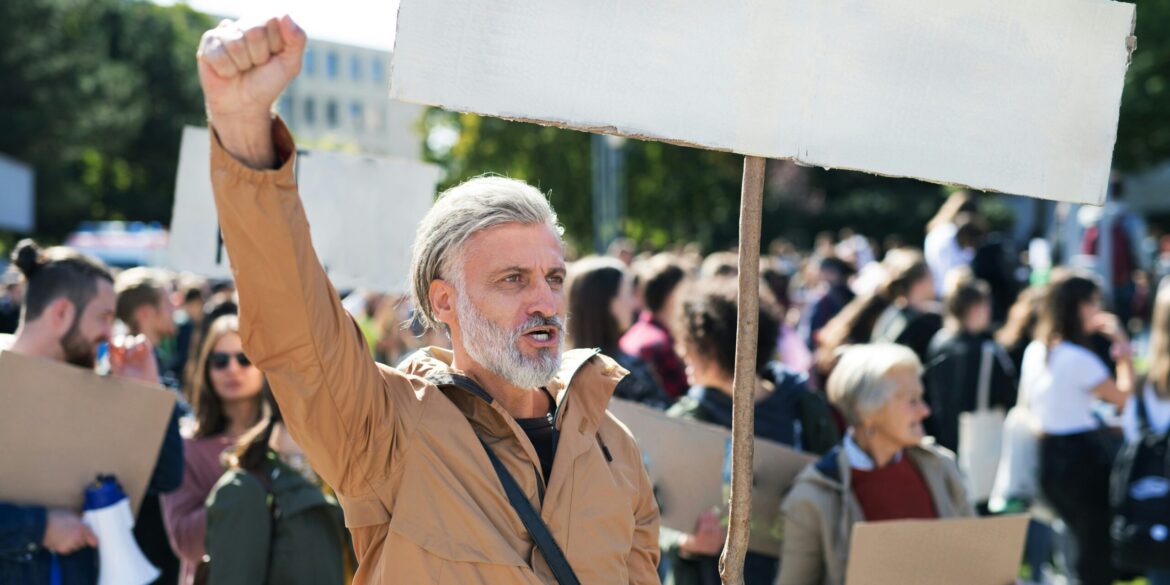On July 11, 2025, the “Fighting Oligarchy Tour” led by Senator Bernie Sanders and Representative Alexandria Ocasio‑Cortez resumed its national run with high-profile events aimed at energizing progressive voters. Launched in February in Omaha, Nebraska, the campaign has visited major U.S. cities to advocate for policies such as universal healthcare, a wealth tax, and campaign finance reform. Each stop emphasizes not just public rallies but also localized volunteer outreach, seeking to convert enthusiasm into lasting grassroots infrastructure.
In Denver, an estimated 34,000 attendees turned out—one of the largest crowds recorded for a Sanders–Ocasio‑Cortez event. The turnout reflected a strong appetite for progressive messaging, especially on economic justice and political reform. At the rally, Sanders declared, “A few years ago, when I used the word ‘oligarchy,’ people didn’t know what I was talking about. Well, they know what I’m talking about now.” Event organizers noted the dual purpose of the rallies: inspiring crowds while recruiting volunteers to build long-term local momentum.
The Los Angeles stop at Gloria Molina Grand Park drew a record-breaking 36,000 participants, which Sanders described as the largest rally in the history of his campaigns. The park and its surrounding streets overflowed with supporters, signaling the campaign’s capacity to mobilize large audiences. Alongside Sanders and Ocasio‑Cortez, speakers included Representatives Ro Khanna and Pramila Jayapal, as well as singer and activist Joan Baez. The event combined political messaging with musical performances and voter registration drives, a model designed to foster civic engagement beyond the day’s speeches.
The tour has made significant stops in cities and states beyond traditional progressive strongholds, including Salt Lake City, Boise, Phoenix, and El Paso. At the University of Utah, more than 20,000 people gathered in a state where left-leaning messages are typically less prominent. According to campaign estimates, over 255,000 people have attended events on the tour, highlighting its reach and resonance even in conservative-leaning regions.
Organizers have designed each stop to include campaign-style town halls that facilitate community conversations, local political education, and volunteer recruitment. By combining spectacle with structure, the tour attempts to build a policy-aware, action-oriented movement. The agenda includes advocacy for Medicare for All, a constitutional amendment to overturn Citizens United, and implementation of a progressive wealth tax. Ocasio‑Cortez regularly tells audiences, “We’re going to throw these bums out and fight for the nation we deserve,” underscoring the campaign’s insurgent tone. Sanders, often targeting corporate power, told one crowd, “You know who the biggest criminals are in this country? They are the CEOs of major corporations who are robbing us every single day.”
While the tour has been praised by many progressives, it has not been without criticism. Some former allies, including ex-Sanders campaign adviser Tezlyn Figaro, have raised concerns that the messaging is tailored to white liberal audiences and that terms like “oligarchy” may not resonate across all racial and economic groups. In response, both Sanders and Ocasio‑Cortez have emphasized the tour’s broad goals and inclusivity, framing it as a push to revitalize the Democratic Party rather than abandon it. Sanders has dismissed speculation about launching a third party, stating that their aim is to push the Democratic establishment toward more ambitious, transformative policies.
Observers note that while the tour underscores Sanders’ long-standing message, it also increasingly spotlights Ocasio‑Cortez’s leadership potential. With her national profile growing and speculation swirling about a possible 2028 presidential run, the tour offers a proving ground for her role as a future standard-bearer of the progressive movement. Nonetheless, she has remained cautious about fueling presidential speculation, focusing instead on her legislative work and the tour’s immediate goals.
As the “Fighting Oligarchy Tour” heads into its summer leg, the question remains whether its message and mobilization will result in tangible shifts at the ballot box or in policy outcomes. What is clear, however, is that Sanders, Ocasio‑Cortez, and their coalition have reignited a conversation about economic fairness, democratic reform, and the power of grassroots action.

